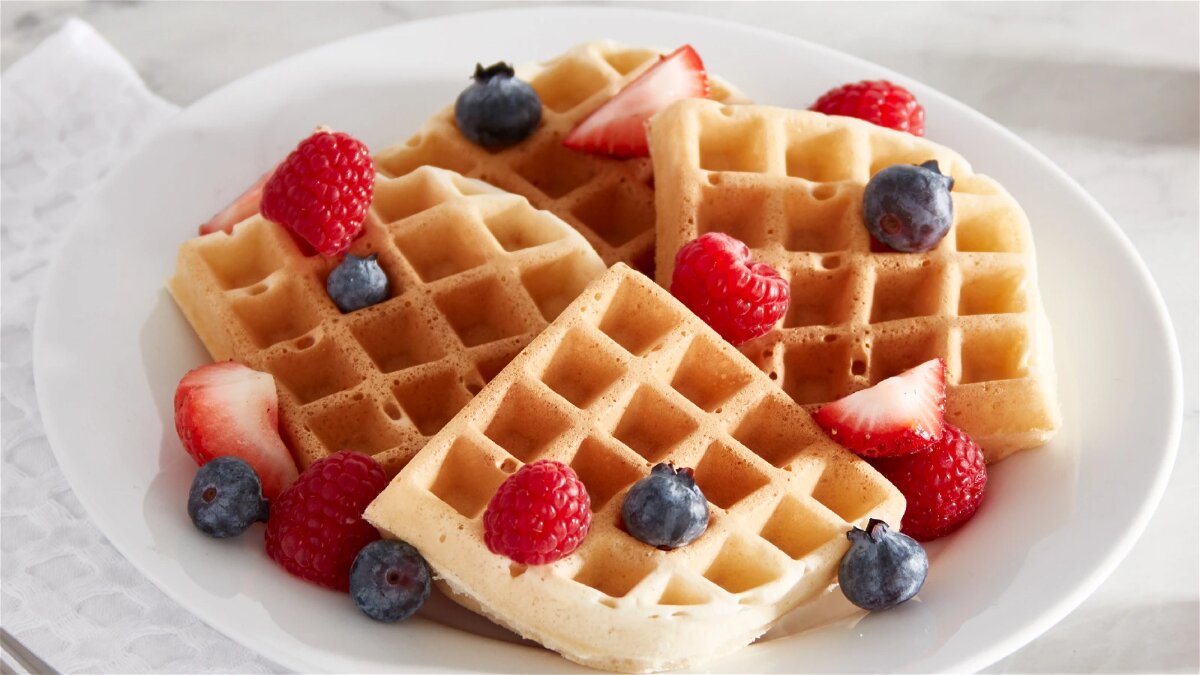Waffles, those delightful creations with their crispy exteriors and fluffy insides, often find themselves under scrutiny when it comes to categorizing them as healthy or junk food. While the perception of waffles as an indulgence might prevail, labeling them as “junk food” might be a misinterpretation. Let’s delve deeper into the nutritional aspects and understand whether waffles truly fall under the category of junk food.
Junk food typically refers to highly processed, low-nutrient, calorie-dense foods that offer little to no nutritional value. They often contain high levels of unhealthy fats, sugars, and additives that can contribute to various health issues when consumed excessively.
Examining Waffles’ Nutritional Profile:
The nutritional content of waffles can vary significantly based on ingredients, preparation methods, and toppings. However, waffles themselves do not inherently fit the strict definition of junk food. Here’s why:
- Variability in Ingredients: Waffles can be made using a wide range of ingredients. While some recipes include refined flour and added sugars that can increase calorie content, others use whole-grain flours and healthier sweeteners, thus offering more nutritional value.
- Potential for Nutrient Inclusion: Waffles can incorporate ingredients like eggs, milk, whole-grain flours, and even fruits or nuts, providing essential nutrients like protein, vitamins, minerals, and fiber, depending on the recipe.
- Customizable Toppings: The nutritional value of waffles can be influenced by toppings. Opting for healthier toppings like fresh fruits, nuts, yogurt, or natural sweeteners can elevate their nutritional profile without compromising taste.
Balanced Perspective and Moderation
While waffles may not be considered a health food in their traditional form due to potential refined ingredients and high calories, labeling them as outright junk food might oversimplify their nutritional status.
- Portion Control and Frequency: Enjoying waffles occasionally or in moderation can be part of a balanced diet. The key is to manage portion sizes and not make them a daily indulgence.
- Mindful Ingredient Choices: Opting for recipes that use whole-grain flours, minimal added sugars, and healthier fats can make waffles a more nutritious choice.
- Healthy Modifications: Experimenting with ingredient substitutions or making homemade versions allows for greater control over the nutritional content of waffles.
Waffles, while they may not fit the stringent criteria of health food, don’t necessarily qualify as junk food either. Their nutritional status depends largely on the ingredients used, serving size, and accompanying toppings.
With thoughtful ingredient choices, mindful portion control, and a balanced approach, waffles can be enjoyed as part of a varied diet without being labeled as outright junk food. Understanding that occasional indulgence in well-prepared waffles, accompanied by healthier toppings, can be a delicious and relatively moderate treat within a well-rounded eating plan.
In essence, the perception of waffles as either healthy or junk food isn’t black and white; it lies in a nuanced gray area where moderation, ingredients, and overall dietary choices determine their place in a balanced diet.


